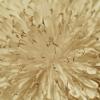ISG INTRODUCTORY EVENT:
LOVE, LOSS, AND LOST LOVE:
Building Capacities for Loving, Losing, and Growing

This introductory event to the year-long San Francisco and East Bay intensive study groups (ISG) will explore ways to work with patients on the development and absence of capacities for love and its loss. If you’re considering registering for the fall ISG, please join us in this preliminary informal, dynamic conversation with various 2020-21 ISG instructors. This will be an opportunity to bring your questions and comments into the conversation with the instructors.
This year's intensive study groups will investigate theoretical approaches and practical engagements with love and loss in the clinical setting. Topics will include unremitting depressive states, developmental and intergenerational transmission of trauma, the impact of cultural hegemony on issues of depression and anxiety, enhancing patients’ positive community-affiliations, and the social construction of “otherness.” These discussions will contribute to participants’ understanding of the cultural contexts surrounding their clinical work.
NCSPP is aware that historically psychoanalysis has either excluded or pathologized groups outside of the dominant population in terms of age, race, ethnicity, nationality, language, gender, religion, sexual orientation, socioeconomic status, disability, and size. As an organization, we are committed to bringing awareness to matters of anti-oppression, inequity, inequality, diversity, and inclusion as they pertain to our educational offerings, our theoretical orientation, our community, and the broader world we all inhabit.
Presenters Response:
Carolina Bacchi, Psy.D., and Adam Beyda, Psy.D.
The class will focus on the impact of intrapsychic and interpersonal trauma as well as on sociopolitical realities and oppressive cultural forms. In our discussion of trauma and its effects (shuttering of love and tenderness, turning away from community) we will of necessity be thinking of the position and potential of the individual with respect to a wide array of constitutive factors, including their social and cultural selves. As a part of this, we hope to invite conversation and reflection about the social landscape and its effect on the constitution of emotional life, including the participants' backgrounds and experiences as social and cultural beings.
Deborah Melman:
The social discourses and implicit cultural assumptions that constitute human identity require attention. In this course which is concerned with difficulties of taking up living in a vital and responsive way we will attend to the impact of denuded, othering and alienated modalities and social constructions which both shape and stultify the self.
Mary Tennes, Ph.D.
The oppression of marginalized groups can be understood as a manifestation of cultural failures to grieve and to love. When privilege is used to avoid a recognition of losses suffered, those losses then becomes expelled into the denigrated other — individually or collectively — and love is foreclosed. In this course we will attempt to link our understanding of a psychoanalytic process, which explores the challenges of opening to both loss and love, to broader socio-political realities and the attempt to approach them in a way that holds transformative possibility.
Deborah Weisinger, Psy.D.
In keeping with the theme of loss of this ISG, I think it is necessary to acknowledge the role that psychoanalysis has played in excluding and pathologizing people that were deemed different (outside of the dominant culture). And to not only acknowledge this loss, but also to bring awareness and open discussion to these experiences as they continue to operate in the present.
Carolina Bacchi, Psy.D., is an analyst at PINC and in private practice in Oakland, working with children and adults, as well as offering consultation for early career clinicians. Originally from Brazil, she is interested in issues of immigration and the interface between cultural dislocation, inner creativity, and psychoanalytic technique.
Adam Beyda, Psy.D., works with adult individuals and focuses on developing creative modes of living. Formerly the Director of Counseling Services at Holy Names University and clinical faculty at the Wright Institute, Dr. Beyda has supervised and taught widely in the community and co-facilitates an ongoing case conference centered on deepening clinical practice. Dr. Beyda, an advanced candidate at PINC, maintains a general practice of psychoanalysis, psychotherapy, and consultation in Oakland.
Deborah Melman, Ph.D., is on the faculty at the Wright Institute, PINC, and SFCP.
She has a private practice in Berkeley.
Mary Tennes, Ph.D., is a psychoanalyst and psychologist in private practice in Berkeley. Dr. Tennes is a faculty member at PINC and has taught at The Wright Institute, CSPP, CIIS, and other graduate and training programs. She has written and presented on the topic of psychoanalysis and the uncanny and has a particular interest in the intersection of psychoanalytic practice, poetry, and contemporary science.
Deborah Weisinger, Psy.D., is a psychologist and psychoanalyst in San Francisco, where she sees individual adults. She is on the faculty of SFCP and teaches and supervises at local clinical training sites, most recently Access Institute and CPMC.
This course is for clinicians with moderate to extensive experience in clinical work with some background in the principles of psychoanalytic approaches or laypersons with a strong academic or cultural interest in applied or clinical psychoanalysis.
No refunds for cancellations. Transfers of registrations are not allowed.
For program related questions contact Todd Rising, drtoddrising@gmail.com or (415) 484-8627.
For questions related to enrollment, locations, CE credit, special needs, course availability and other administrative issues contact Michele McGuinness by email or 415-496-9949.
Intensive Study Group Committee
The Intensive Study Group Committee oversees the year-long ISG. Each fall, the committee puts on an Introductory Event featuring invited guest lecturers who speak to theoretical and clinical themes related to the current subject of the ISG. This event is open to all.

